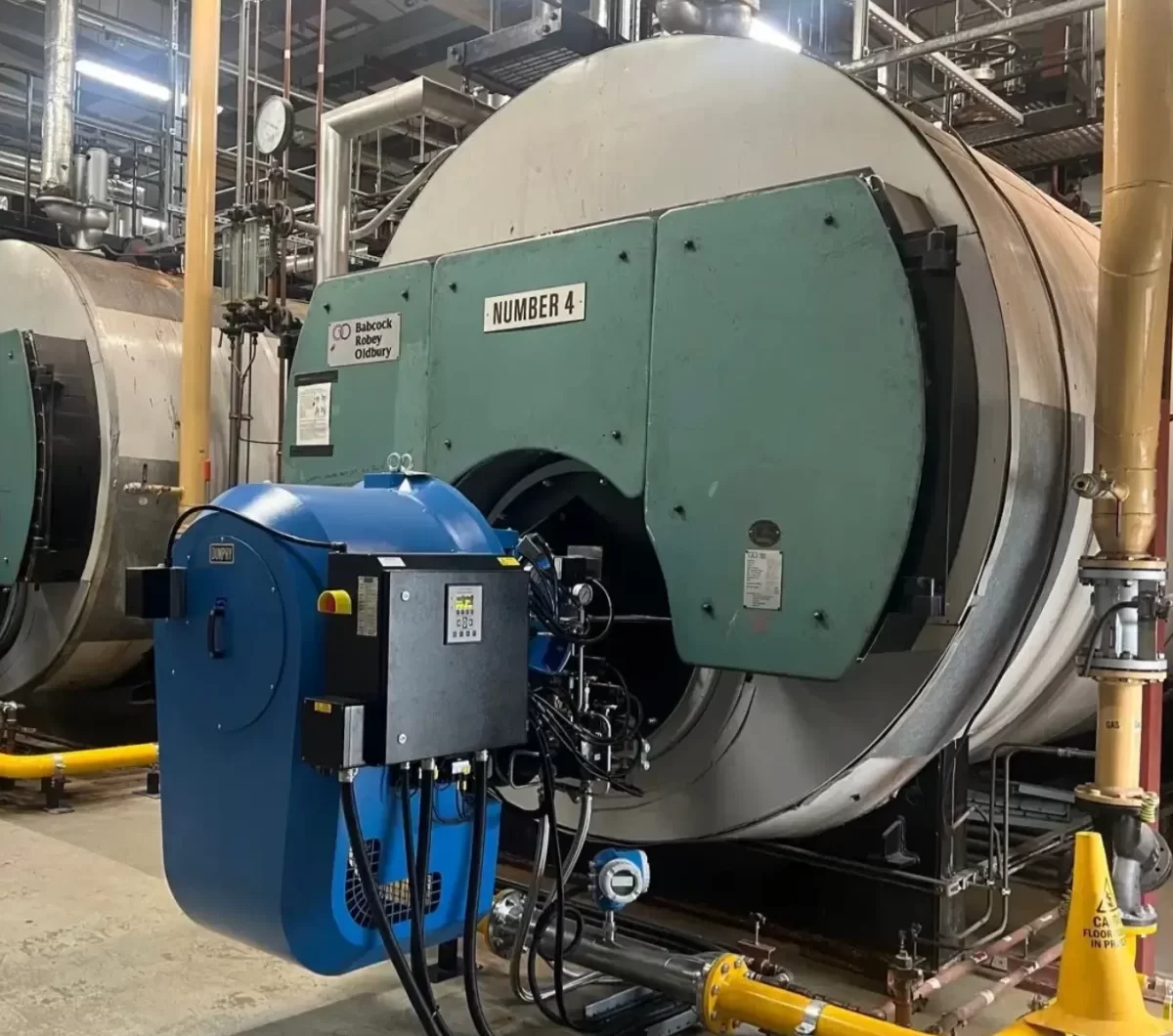Key benefits of boiler economisers
- Fuel efficiency: by preheating the boiler feedwater using recovered waste heat, economisers significantly reduce the amount of fuel required for steam generation, resulting in noticeable energy and cost savings over time.
- Reduced emissions: lower fuel consumption directly leads to a reduction in CO₂ and other greenhouse gas emissions, helping businesses meet environmental targets and improve sustainability credentials.
- Extended equipment life: Economisers help minimise thermal shock – the stress caused by sudden temperature changes, which can otherwise damage boiler tubes and components, thereby extending the lifespan of your equipment.
- Optimised performance: Maintaining a steady, elevated feedwater temperature supports consistent boiler operation, improves steam quality, and reduces the likelihood of performance fluctuations or downtime.
Types of economisers
Economisers are tailored to specific boiler systems and operational requirements:
- Non-condensing economisers : a heat recovery device that improves boiler efficiency by capturing waste heat from flue gases without cooling them below the dew point, thus avoiding condensation and corrosion.
- Condensing economisers: a heat recovery device that increases boiler efficiency by cooling flue gases below their dew point to capture both sensible and latent heat, resulting in condensate formation and higher energy savings.
- Finned tube economisers: a heat recovery device that uses extended surface area tubes to enhance heat transfer between flue gases and boiler feedwater, improving efficiency by maximising thermal exchange in a compact spaces.
Example of a boiler economiser in action
A manufacturing plant using a steam boiler system can integrate a condensing economiser to reclaim heat from exhaust gases. If the flue gas leaving the boiler is at 200°C, an economiser could recover sufficient heat to raise the incoming feedwater from 85°C to around 120°C. This reclaimed heat reduces fuel consumption by roughly 7%, significantly cutting fuel bills and carbon emissions while ensuring smoother boiler operation.
Boiler economiser: design considerations
Implementing an economiser necessitates careful planning:
- Material selection: components must be able to endure high temperatures and resist corrosion from potentially aggressive flue gas compounds.
- Flow configuration: counterflow designs improve heat transfer by maintaining a greater temperature gradient between fluids throughout the economiser.
- Maintenance access: Easy access for cleaning is essential to remove soot buildup, which can hinder heat transfer and reduce system efficiency.
- Control systems: Integration with boiler control systems ensures safe, efficient operation and helps prevent issues like feedwater overheating or boiling inside the economiser.
Key takeaway
Integrating an economiser into a boiler system is key in a move towards energy efficiency and sustainability. By effectively reclaiming waste heat, economisers not only reduce operational costs but also contribute to environmental conservation efforts. For facilities aiming to optimise their steam systems, investing in a well-designed economiser is a great choice.
Industrial boiler options
Whether you’re exploring steam boilers, industrial hot water boilers, electric steam boilers or other alternatives, Dunphy Combustion has the expertise and technology to support your needs.
